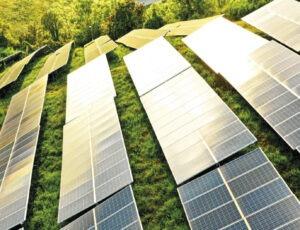New climate target in the renewables category
According to PwC’s Net Zero Economy Index, global carbon intensity was down just 1.02% in 2023, while the 1.5°C target of the Paris Agreement would require a 20.4% annual emissions reduction.

This article is available for reading in Trade magazin 2024/12-2025/01
At the same time Hungary has seen a dynamic growth in renewable energy use in recent years, particularly in solar capacity, which reached 7,850MW by 2023. As a result of this, the Ministry of Energy revised the National Energy and Climate Plan (NEKT) and set new targets: to increase the share of renewable energy to 29% by 2030, to increase solar capacity to 12,000MW and to reduce greenhouse gas emissions by 50%. Beáta Szoboszlai, energy industry expert at PwC Hungary told: improving energy efficiency and reducing energy demand are key priorities for making real progress towards decarbonisation. //
Related news
Tork at SIRHA Budapest: hygiene, efficiency and sustainability for the HoReCa sector
🎧 Hallgasd a cikket: Lejátszás Szünet Folytatás Leállítás Nyelv: Auto…
Read more >Bonduelle achieves B Corp™ certification worldwide
🎧 Hallgasd a cikket: Lejátszás Szünet Folytatás Leállítás Nyelv: Auto…
Read more >Related news
Festival buzz at the 60th anniversary EuroShop trade fair
🎧 Hallgasd a cikket: Lejátszás Szünet Folytatás Leállítás Nyelv: Auto…
Read more >Historic price reduction at ALDI
🎧 Hallgasd a cikket: Lejátszás Szünet Folytatás Leállítás Nyelv: Auto…
Read more >







